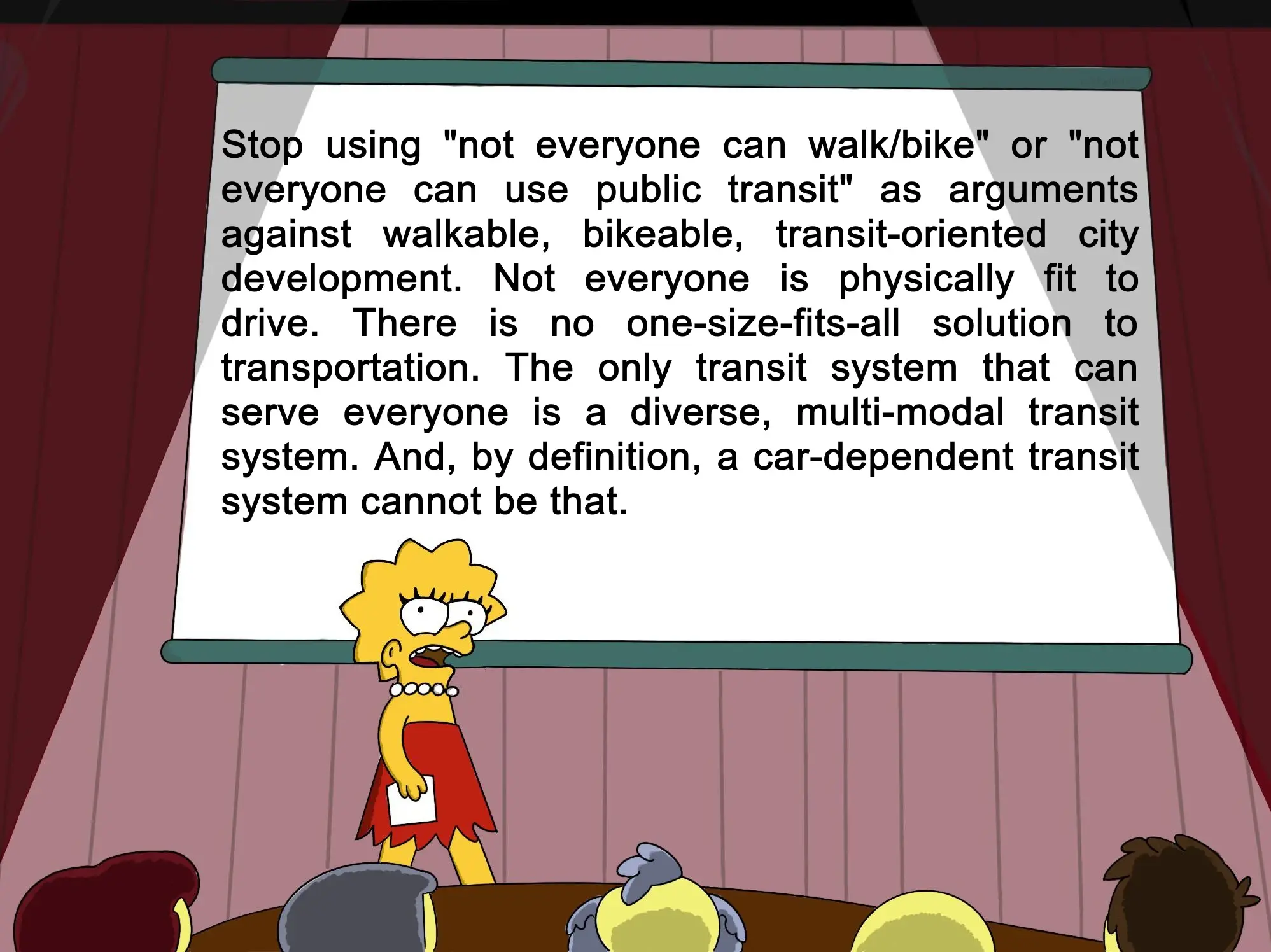Fuck Cars
A place to discuss problems of car centric infrastructure or how it hurts us all. Let's explore the bad world of Cars!
Rules
1. Be Civil
You may not agree on ideas, but please do not be needlessly rude or insulting to other people in this community.
2. No hate speech
Don't discriminate or disparage people on the basis of sex, gender, race, ethnicity, nationality, religion, or sexuality.
3. Don't harass people
Don't follow people you disagree with into multiple threads or into PMs to insult, disparage, or otherwise attack them. And certainly don't doxx any non-public figures.
4. Stay on topic
This community is about cars, their externalities in society, car-dependency, and solutions to these.
5. No reposts
Do not repost content that has already been posted in this community.
Moderator discretion will be used to judge reports with regard to the above rules.
Posting Guidelines
In the absence of a flair system on lemmy yet, let’s try to make it easier to scan through posts by type in here by using tags:
- [meta] for discussions/suggestions about this community itself
- [article] for news articles
- [blog] for any blog-style content
- [video] for video resources
- [academic] for academic studies and sources
- [discussion] for text post questions, rants, and/or discussions
- [meme] for memes
- [image] for any non-meme images
- [misc] for anything that doesn’t fall cleanly into any of the other categories
Recommended communities:
view the rest of the comments

You don't need full-sized cars for in-city accommodation.
Exactly, and I strongly suspect that most in-city accommodation can be done with neighborhood electric vehicles (NEVs)
I’m a disabled person living in a city in the UK. We have a scheme that allows me to swap my disability benefits for a car or mobility scooter. The cars deemed suitable for disabled people using a collapsible wheelchair are “compact/small family cars” and that size is perfectly adequate.
My most recent car is a seat Leon - a self charging hybrid. The mobility scheme I mentioned is really pushing fully electric cars and I’d absolutely love one. But being disabled often means being poor and like many other disabled people I live in a rented flat. There’s no EV charging at my block of flats. There’s no EV charging in my local town. I cannot afford to move, I can barely afford to survive. There are just SO many obstacles that aren’t being addressed in the UK it’s beyond frustrating.
It depends on the city. Many american cities have so much suburban sprawl that you're just not going to plan your way out of car dependency in our lifetime. The progress that can be made in these areas right now is zoning to break up the massive single use neighborhoods.
Edit: "full size" could mean a couple of things. Mall crawlers and pickups are ridiculous here. Sedans, hatchbacks, and even crossovers make sense here, depending on your individual lifestyle and needs.
That is simply untrue. Change can happen quite quickly if people care.
That level of change is rebuilding the entire surburb to be more dense. There isn't the building capacity to do this to all of them , even if by some miracle you found the money.
You can't make a bus route work when the area it's travelling through is so spread out, it has to stop too much and drive for too long and costs more than it can make in fares.
If you want to change America then good luck, but it'll be your grandchildren that get the benefit should you succeed.
If you start building out transit before you can use it effectively, it can help guide the buildout. You can not only zone for many concentrations of buildings but commit to an incentive to encourage people to live there. “I want to move into this apartment building because it is a nice walkable area of shops, parks, restaurants plus they’re building a train station”
I don't disagree, but building transit for hypothetical use decades down the line is expensive and very unlikely to happen.
To be clear, I'm talking about places like where I live, i.e. no businesses at all for several miles in any direction. We need corner stores, neighborhood bars and restaurants, and retail space so people want to get somewhere that isn't miles and miles away.
Yeah I’m probably spoiled by some recent projects in Boston where I live.
I in no way implied you did. My comment is an important note for others.